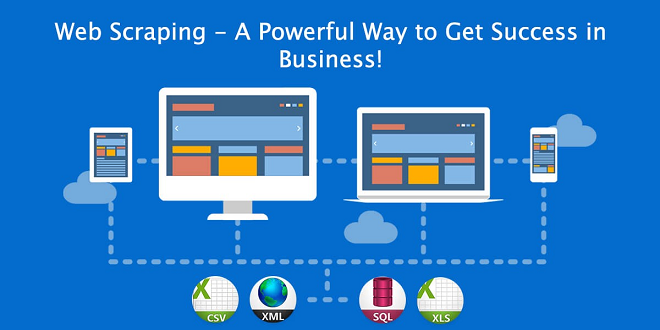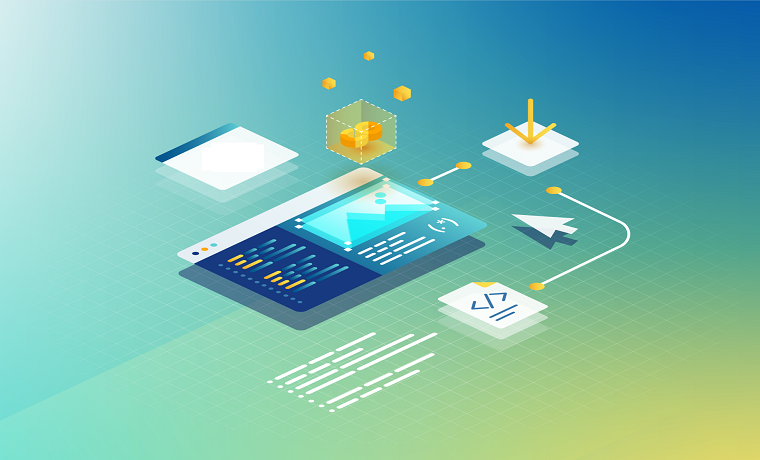Today, the volume of information exceeds the ability to process it even with the most talented person or a subject-oriented specialist. That is why website scraping was invented to automatically collect and process large amounts of information.
Startups and companies of all sizes are increasingly aware of the search importance. You can gain a competitive advantage if you know how other companies work. However, such data should be obtained not just once, but continuously. And whether it’s right or wrong, many are involved in this business.
Suitable for one purpose or another, the question of legitimacy still makes it a point of contemplation. So let’s see if scraping is legal or not.
Why is scraping perceived negatively?
Web scraping has been around for a long time. And throughout its existence, there have been different opinions about its use. Collecting data puts retailers in an interesting and ambiguous position. They want to see what their competitors are doing, but on the other hand, they want to prevent rivals from tracking their actions.
This kind of data collection is generally hated for several reasons:
- People think that by scraping companies break into someone else’s space and gain a competitive advantage and financial benefit. And everyone gets the feeling that scraping is only about making money.
- Sometimes companies cross the line and violate copyright rules or agreement terms.
- Scraping causes a heavy load on the site. Systems can also remain anonymous during data extraction.
- Those who retrieve data can bypass security measures that prevent automatic data uploads.
Of course, collecting data may seem unpleasant, but it’s part of being online. For example, Google and Bing also use scraping web pages to index them for their search engines. Or when a sports journalist uses scraping to research soccer statistics for an article.
It’s normal to be nervous about using new technology, especially if you don’t know anything about it. Scraping is a great way to get important information, but you have to collect the data correctly to avoid problems.
Is data scraping illegal?
Scanning and collecting information is not illegal. Anyway, you can easily scan your site. For startups, this is a low-cost and effective way to collect data. Large companies use scraping for their benefit.
Therefore, it is important to understand the ins and outs of the scraping legality to better understand the risks and protect yourself from liability.
For scraping to be legal, it has to match:
- Data collection must not break the Computer Fraud and Abuse Act (CFAA).
- If the data are not placed on the Internet and are not used for commercial purposes. In other words, if there is no copyright breach. For example, a scraper can search YouTube videos by title and keywords and download them, but it is forbidden to upload videos anywhere.
- Scraping is legal as long as it follows the rules of Robots.txt.
- If an adequate request frequency is used that does not affect the site.
- If scraping follows the rules outlined in the TOS. It is not illegal to collect publicly available data.
- Data collection must not violate basic privacy and security principles. For example, collecting a user’s confidential information.

You can also choose a more secure path and use an API. Most sites already offer it to their users. Using the API intelligently means legal security.
When you are sure that you do not break any of the points, you can safely collect data from the sites. But if you find yourself in a difficult situation and don’t know what you should do, it’s wise to consult your lawyer and ask for advice.
Arguments for scraping
Despite all the skepticism toward scraping, it has some positive arguments. So, for example, scraping will help to make a user analysis, based on which you can study user behavior. This will help you understand your audience better and offer what they like, make exclusive offers, and improve the product based on feedback analysis. Alternatively, you can follow competitors on social media and gather information about what people are saying about these companies and their products. And on that basis, create new or improved goods.
When you open a business, it has to be based on some kind of policy and strategy. This is where scraping can play a major role, and provide reliable and up-to-date data. It will give an understanding of what audiences the business can affect, what can be improved, and what areas can hurt the brand and damage the reputation. By understanding all the nuances of the job, it is possible to do business profitably.
Another argument for scraping is lead generation. You can search for customers on your own, but automatic data collection will make your task much easier. With a database of e-mail addresses, you can contact people and send out information, newsletters, invitations to events, or promotions. But don’t overuse it. Nobody likes to be spammed with messages. You’re unlikely to find customers that way.
If there are pricing problems, scraping can help with that. It’s very difficult to find that line where you can increase profits without losing customers. Therefore, data collection will not only help you gather pricing details, but also keep informed of any price changes from your competitors. You can also keep track of your competitors’ promotions and campaigns so you know what works best.
As long as the data collection does not violate the law, there is no reason to call it wrong or illegal.
How a U.S. court legalized scraping sites and prohibited it from being technically prevented
In late 2019, a U.S. court denied LinkedIn’s petition against HiQ. HiQ scraped data from publicly available LinkedIn user profiles and used it to consult employers. The court sided with HiQ. Because the company only collects information from publicly available LinkedIn profiles. This means that anyone has the right to access this information. Also, the court decided that web scraping with publicly available information did not violate the CFAA (Computer Fraud and Abuse Act). This case showed that non-copyrighted data in the public domain can be used for scraping.
This is a really important decision. The court legalized scraping and prohibited competitors from preventing data collection as long as the information is publicly available. It also affirmed the clear logic that a scraper bot logging in is not legally different from a browser logging in.
Conclusion
Automated data extraction is inevitable because it is a way to get good information for decision-making and business development. Also, this type of information collection saves a lot of time and resources, especially for those who do it regularly. Scraping isn’t bad if you don’t overuse it. And for legal scraping, you need to maintain a balance between your needs and the sites’ capabilities.

